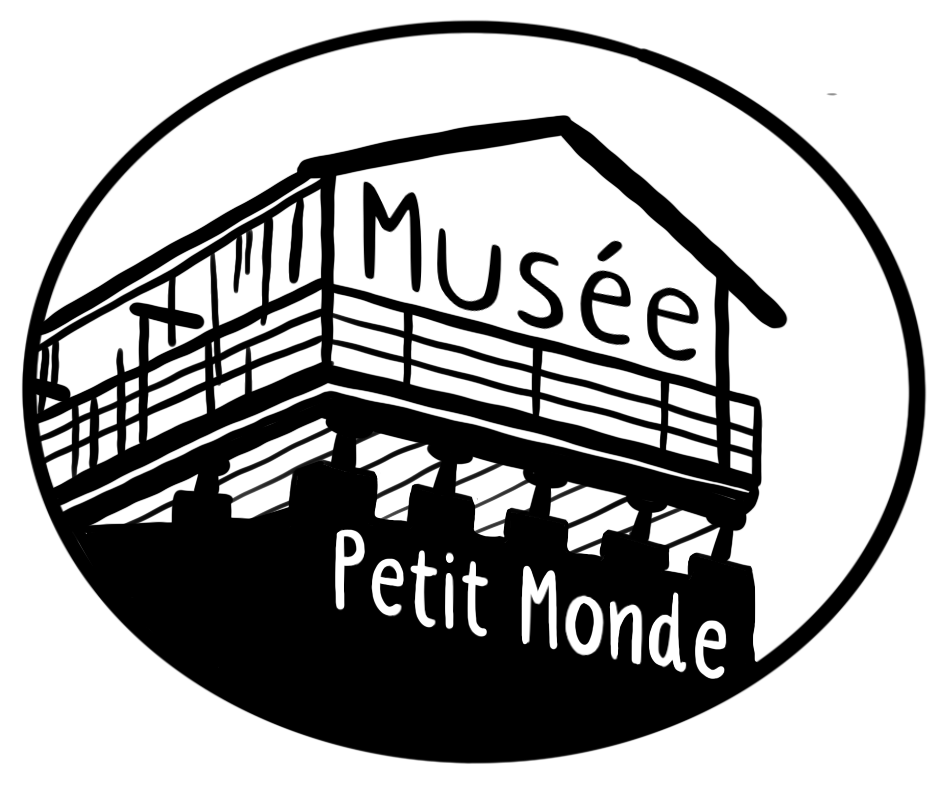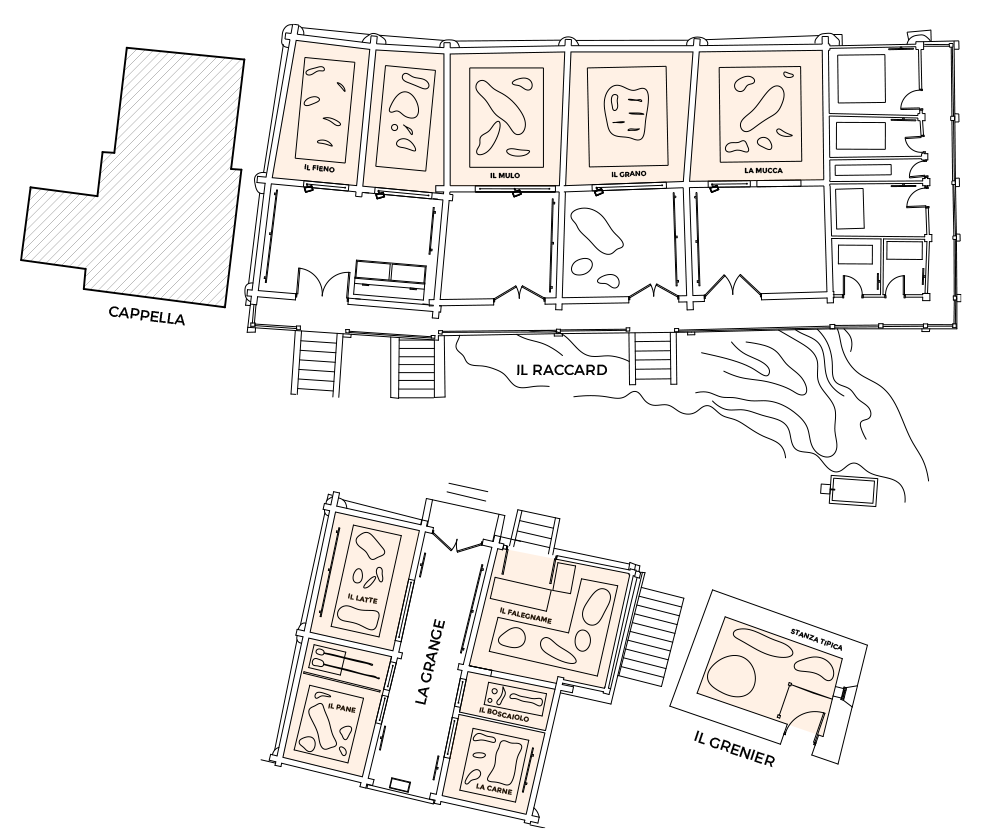Musée Petit Monde
A visit to the Musée Petit Monde is much more than a simple visit, it is a journey through time to discover a distant, fascinating and lost world. It is a long path through the memory and recollections of the community, with images and objects hosted in the three parts of the Musée: the raccard (1462-1503), the grandze (1700) and the grenier (1476).
The buildings remained sheltered over time, they were hidden in a “small world” of their own holding the secrets of the past, when this corner of the mountain was an important passage to Switzerland.
Historical Background
The Musée Petit Monde is the museum of Torgnolein people – their history, culture, work and territory.
The story starts from the Labyrinth of memory, running from year zero up to the 50s. The itinerary leads the visitor to explore and rediscover the exciting and evocative past of the village. The inhabitants lived in symbiosis with the territory, following the rhythm of the seasons and farming work. The museum’s exhibits narrate the life, relationships and social development of the community.
Inside the tsé of the raccard, the grandze and the grenier, through an original arrangement, you can admire the objects donated by Torgnolein villagers. They are related to work practices and the processing into products in their agro-pastoral community.
Natural Environment
The Musée Petit Monde is located in the village of Triatel, which, together with Etirol, now makes up the Petit Monde. Traditionally, this denomination also included the Ronc hamlet.
Triatel stands on a sunny promontory, at the passage to the Chavacour valley, one of the ancient routes to Switzerland. At that time the inhabitants lived off agriculture and sheep farming. The side of the valley towards Etirol, sunny and with no water resources, was cultivated with cereals, mainly wheat and rye, on terraces supported by dry stone walls, which can still be seen today. The village areas, richer in water, lent itself to cattle breeding and hemp cultivation.
On foot
The Musée Petit Monde can be reached on foot taking a pleasant panoramic walk, mostly flat, overlooking the Valtournenche Valley. You can start from Mongnod, the core hamlet of Torgnon, or from the crossroads on the main road, following the signposts.
Along the way you come across a panoramic terrace, from which you can enjoy the view over the village and the valley, as well the picturesque chapel of Ponty, built against the rock to protect wayfarers. You can then continue your walk beyond the Musée, until you reach the mill and the waterfall on the Petit Monde stream, towards the charming hamlet of Etirol.
The Petit Monde is truly an “other world”, where you can enjoy peace and nature.
Infos
Openings
Summer:
- in July open every weekend in July;
- from July 22th until September 3rd open every day.
Open from 9.30am to 12.30am and from 3pm to 6pm.
Free entry.
Other seasons: open only by reservation (subject to availability) with entrance fee, for groups of at least 8 people.
Contacts
Tourist Office
Phone: +39 0166 54 04 33
Email: info@torgnon.net
Library
Phone: +39 0166 54 02 13
Email: biblioteca@comune.torgnon.ao.it
Where we are
The Musée Petit Monde is located in Torgnon, Aosta Valley, in Valtournenche, the Matterhorn valley.
At Châtillon you leave the main valley and continue towards Valtournenche. Follow the regional road for about ten kilometers to the village of Antey-Saint-André, then turn left (orographic right side of the river) and continue for about 6 kilometers to Mongnod, the core hamlet of Torgnon. Then, continue on the same road for about 400 meters following the signposts till the crossroads for Petit Monde.
The route to reach the Musée Petit Monde from the village center is suitable for everyone and can easily be covered on foot or by bicycle.

